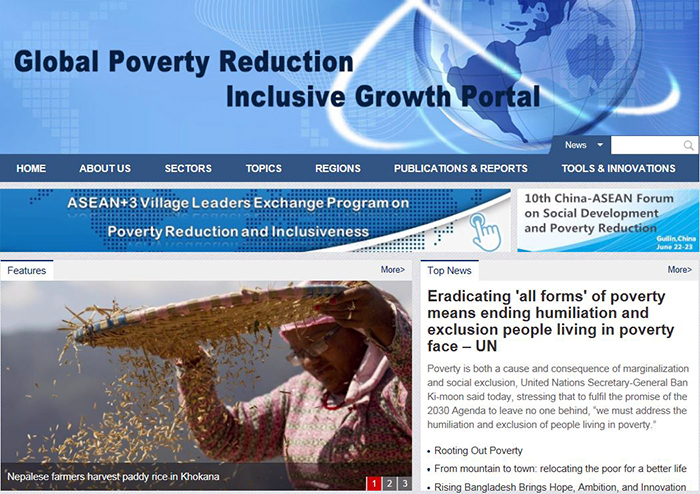Ending poverty in China: The role of knowledge exchange in poverty reduction
World Bank by Gladys H. Morales, October 20, 2016 Adjust font size:
This article is part of a series produced to commemorate End Poverty Day (October 17), focusing on China – which has contributed more than any other country to global poverty reduction – and its efforts to end extreme poverty by 2020.

China has made remarkable progress in poverty reduction by lifting over 700 million people out of poverty in the past three decades. Under sustainable development goal 1, the international community has committed to end poverty in all its forms and everywhere by 2030. An objective that China expects to achieve 10 years earlier of the deadline by lifting the remaining 55 million of extreme poor out of poverty by 2020.
On September 19, China released its national plan for the implementation of the 2030 Agenda for Sustainable Development at the United Nations Headquarters in New York. During his intervention at the event, Premier Li Keqiang confirmed his country’s willingness to participate in international cooperation to contribute to the achievement of the sustainable development goals, to increase investment in South-South cooperation and to share development experiences and opportunities.
Policy makers and implementers from other countries are interested to learn how China has been successful at reducing poverty and how it plans to achieve the total eradication of extreme poverty ahead of anybody else. However, the challenge is on developing and implementing effective information and communications technologys (ICTs) and knowledge exchange platforms that will allow comparison and analyses of the experience and performance and to adapt that experience and knowledge to different contexts.
In an effort to respond to such needs, the International Poverty Reduction Center in China and China Development Gateway launched the Global Poverty Reduction and Inclusive Growth Portal (GPIG) with support from the World Bank and ADB. The portal is a knowledge sharing platform on on poverty reduction in China and the entire Asian region through South-South and triangular cooperation.
It provides handbooks, updates on key anti-poverty events and research, local and regional news on the progress towards poverty reduction, and the challenges faced by China and other countries in the region. It allows policy makers and implementers to learn from each other in a systematic and continuous manner.